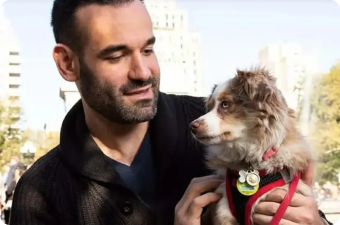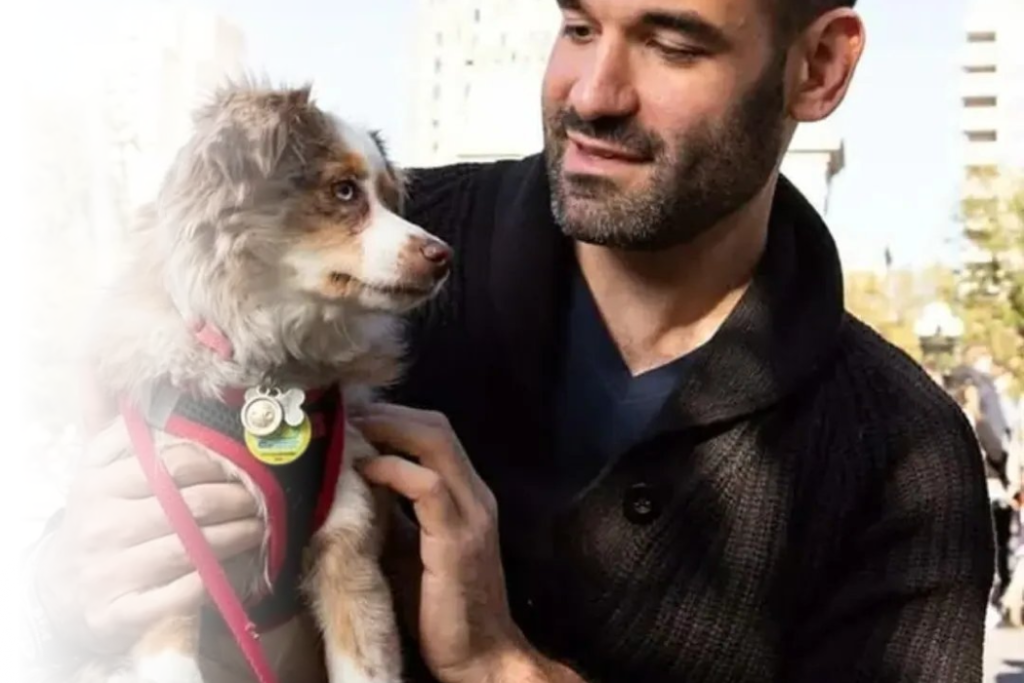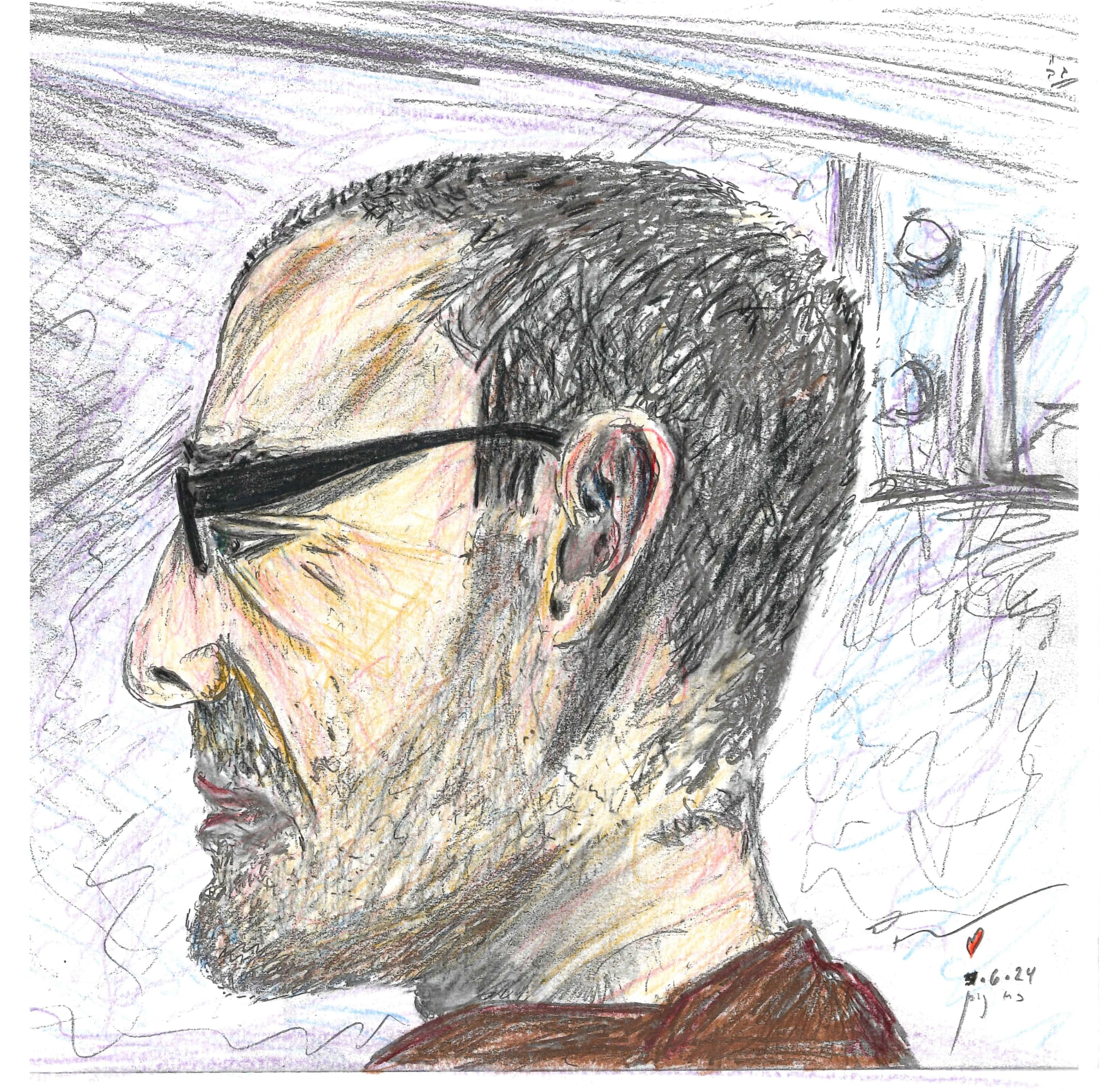A strange set of stories introduce us to Israel’s greatest prophet and leader in this week’s Parsha, Exodus: “It happened in those days that Moses grew up and went out to his bretheren and observed their burdens; and he saw an Egyptian man striking a Hebrew man, from his brethren. He turned (faced) this way and that and saw that there was no man, so he struck down the Egyptian and hid him in the sand.
He went out the next day and behold, two Hebrew men were fighting. He said to the evil one, ‘Why would you strike your fellow?’ He replied, ‘Who appointed you as an officer and judge over us? Do you propose to murder me, as you murdrered the Egyptian?’ Moses was frightened and he thought, ‘Indeed the matter is known!’ Pharoah heard about the matter and sought to kill Moses, so Moses fled…” (Exodus 2:11-15)
Wait. If there was “no man”, who snitched on Moses?
There are two possibilities.
The first is that the Hebrew victim snitched, or told other Jews and they snitched.
The Torah makes clear in the second scene above that there were Jews who were “evil” (Hebrew: rasha) and would even beat a fellow Jew. Throughout history, there have been Jewish people willing to help their oppressors or turn a blind eye to injustice in order to personally benefit.
But I do not believe this is the full story, because the Torah is very efficient and intentional with its words, and two phrases stand out: First, why did the Torah specify that Moses “looked this way and that” (“V’Yifen Koh v’Koh”). It could have simply said they were alone. It’s goes without saying that someone about to strike a guard would check there were no witnesses or other guards to interfere.
Second, why does the Torah specify a second time that the first victim was “from his bretheren”?
I believe the answer is that they were not alone. Moses looked around and saw that nobody among his “bretheren” was being a man. Nobody was standing up for the humanity of the victim — not even the victim.
And if the first option is correct, that they were alone, this analysis remains true, because the victim was not man enough to protect Moses’ identity *after* he’d been spared!
(There are some other, fun, mystical answers, such as Rashi suggesting that Moses prophesied that no convert would descend from this Egyptian, but I prefer lessons from “pshat”, the plain meaning of the text.)
What is a “Man” in the Torah?
The last “Man” we encountered named the Jewish people. It was the “Ish”, the “Man” who met Jacob on the road to facing Esav (Gen 32:25), who Jacob overcomes, and who names him Israel, “For you have wrestled G-d and men and overcome.” (Gen 32:29) We learn that this “Man” is really an angel, so why does the Torah choose the word “Man”?
As we discussed, that wrestling match was Jacob’s mental battle to coexist in a world that is both material and Godly. In this battle, we are told, he comes “face-to-face”, Panim el Panim, with G-d, and finds his faith — his ability to rely on G-d instead of natural or man-made solutions and blessings. He becomes brave and faces his 22-year-long adversary, Esav, fearlessly, with love and kindness.
So we have two fight scenes, and in one there’s a “Man” Jacob must come to terms with, and in the other Moses must be the Man. Both proceed encouters with G-d, right before these men take on “official” leadership roles, as the namesake of Israel, and as its prophet of Redemption and Revelation.
In the classic movie, A Few Good Men, the defendants (spoiler alert!) are tried for killing a fellow Marine. They are found not-guilty of murder after it’s revealed they were ordered to give him a “Code Red”, to haze him to toughen up and his death from resulting health failure was an unintended result. Despite being found not-guilty, the judge orders them dishonorably discharged.
One defendant protests, “But Colonel Jessup said he ordered the Code Red! What did we do wrong? We did nothing wrong!”
“Yeah, we did,” his more senior co-defendant answers, “We were supposed to fight for those who couldn’t fight for themselves. We were supposed to defend Willy.”
Being a Man — the Torah tells us time and again from Genesis into the start of Exodus and (spoiler alert!) beyond, requires standing up for what is right even (*especially*!) when those around you won’t, even when your boss gives you an order that is unethical. To even *delay* doing the right thing angers G-d.
It doesn’t require being Jewish or male, either. As Rabbi Sacks explains, the Torah tells us about two Egyptian* midwives, Shifra and Puah, who defy Pharoah’s orders to murder Jewish male infants, and instead, fearing G-d, help Jewish women protect the infants — even lying to Pharoah’s face.
We then learn that Moses was saved by Pharoah’s daughter. The greatest prophet and leader of the Jewish people has a name given to him by an Egyptian mother, and unlike Abraham, Sarah, Israel (formerly Abram, Sarai, Jacob), G-d does not rename Moses out of respect for this heroic woman.
(The Torah is repleate with acts by heroic women, non-Jews, and converts — the sexism and bigotry one finds in “Western” sequels to Judaism and some more-recent Jewish sects is a later invention, and surely a grave error antithetical to Torah values. Maimonides makes clear that all mankind is created in G-d’s image and all humans are children of G-d.)
Moses’ own existence is due to his parents defying orders to not procreate, as Pharoah would kill any Jewish male infants. How does the Torah describe his father? “A man” from the tribe of Levi.
A Man.
Moses is the product of heroic parents, and an adoptive mother, who defy orders and do the right thing. (The Tribe of Levi is known for this — they were the only tribe to maintain their faith in Moses and G-d and refuse to worship the Golden Calf, and their patriarch ran to avenge the defilement of Dina. (Full disclosure: I am a Levi.))
When you see injustice, it is not because of one man acting badly, it is because there is “no man” standing up for what is right.
The Torah is telling us to be that man. Or woman.
It is not easy, nor is it without risk. The Torah is not some New Age Christian utopian fantasy where your dreams instantly “manifest” without action through incantation and dreaming. It demands action, with faith.
We know that Moses first tries to avoid responsibility, from personal insecurity and fear. There are no saints in the Torah, no perfect humans.
When asked by G-d to speak to the Jewish people and announce their redemption, he protests, “But they will not believe me. They will not listen to me. They will say, ‘God did not appear to you.’” (Ex 4:1)
Moses protests that he is unable to speak well, “Please, my Lord, I am not a man of words, not since yesterday nor since the day before yesterday, nor since You first sope to Your servant, for I am heavy of mouth and heavy of But this escapism angers G-d. The Torah says clearly, “The wrath of God burned against Moses…” (Ex 4:14)
Talmudic sage Resh Lakish explains that G-d gave Moses’ arm leprosy (Ex 4:6) for doubting the Jewish people’s ability to have faith. (Shabbat 97a). We are taught that Moses would have been the High Priest, but this and the priesthood (Cohanim) was giving to his brother Aaron and his sons, as punishment for Moses’ doubt. The Peneah Raza, Rabbi Sacks explains, teaches that Moses does not appear in the Parsha Tetzaveh, which describes the building of the Tabernacle as a result of his refusal to lead.
Moses eventually relents and leads the Jewish people, but the damage is done — Moses will not be a Priest or lead the Jewish people into Israel.
The Chafetz Chaim explains that delaying saving captives (“Pidyon Shvuyim”) is akin to murdering them.
Maimonides makes clear that redeeming captives takes precendent over feeding the poor, building a synagogue, observing Shabbat, and pretty-much every Mitzvah, because the captive’s life, wellbeing, and livelihood is as stake. He lists 8 laws one violates by *delaying* redeeming a captive, including shedding blood!
Yet, here, out of personal insecurity, Moses delays in saving the Jewish people from captivity.
Anyone held captive can tell you that a day of delay feels like an etenity — especially when someone can help speed up your release and refuses to act immediately. I have experienced this multiple times (even last week!)
and it is among the most painful experiences of my life — not even the refusal to help, even a small delay or half-
measure approach is torture. You wonder, where is the humanity in this person? Why can’t they see me as a human?
And yet, it is common for people to look at a captive or other individual being abused and to do nothing, to see “no man” helping, to not help.
The Torah comes to tell us such inaction is forbidden.
This is not an ancient story. We live this today.
Recently, Joe Rogan mentioned a quote on his show: “If you have 300 good cops and 12 bad cops and the 300 good cops do nothing to stop the bad cops, you have 312 bad cops.”
We have lots of bad cops.
We have a prison system that dehumanizes and tortures men, leaving them sicker and more damaged when they came in — even dead. It does almost nothing to help them gain skills and health to be able to make it on the outside. We know this is wrong, the “good” cops know this is wrong, but it persists for years. “That’s the way it is.” “It won’t work.” “The guys in charge won’t let…” “I need to get approval from my boss…”
We have prosecutors who joke in emails about burying evidence, Judges and prosecutors (same thing 80% of the time) who turn a blind eye to witnesses conspiring to hide emails and messages admitting liability, we have defense attorneys hiding that they are literally in-bed with the prosecution while they refuse to take reasonable steps to defend their clients.
We can police who beat protestors, who take advantage of the sick, who abuse their access to information and their power and influence.
And there are “good” prosecutors and judges and police and case managers who see this and do nothing — when all it would take is one email, one letter motion, to end an injustice, to stop an abuse.
It’s human to fear retaliation and avoid taking responsibility.
But doing so does not make you a Man.
As I quote often, Rabbi Telushkin explains that the Torah’s first interpersonal conflict has Cain ask G-d, “Am I my brother’s keeper?” G-d spends the rest of the Torah answering in the affirmative.
The Torah tells us time and again to treat underdogs and victims with compassion, “for you were Strangers”. We are given this as the reason to not oppress converts, orphans, widows, immigrants. Not because it’s objectively the right thing to do, although it is, but because to do so *requires* empathy, to feel a part of what they feel, to understand what it’s like to be isolated, weak, hurt, and to need kindness in that moment. To understand what a delay in help feels like.
The Torah requires Empathy. It requires us to *relive* the Exodus “as if you were there” every year so that we can strengthen this Empathy.
Rabbi Sacks explains that it is our journey in Egypt, our exile, our being “strangers” that gives the Jewish people their unique Empathy. This ultimately is why, as The Rav said, “The heart of the Jews belongs to the world.”
G-d does not side with the powerful, but with the underdog who fights, and with the man who fights for the underdog — *despite* reasonable fear, *despite* powerful leaders telling him to not help.
Unlike all other creatures on the planet, Man is created “in the image of God”.
The Jewish view of G-d is unique in that He takes a personal interest in each of us, and especially the underdog.
Of all the things He wants us to remember daily, it is that He saved a nation of slaves, not the powerful rulers.
When nobody is here to help us, G-d is.
We created are to be like Him. Just as G-d stands up for what is right, just as G-d overcomes “nature” and the “natural” tendency to leave things as they are and instead acts to help, so must man.
It is the very reason we are here.
From Moses our Teacher we learn, when you look around and see “no man” helping, be the one who does.
With love, Ari ==========
FOOTNOTES: *Per Shadal and Abarbanel they were Egyptian. Though there is the tradition they were Yocheved and Miriam, it is difficult to believe Pharoa would trust Jewish Midwives to murder Jewish babies. (RJS)
==========
Group message. Draft 1.0. You may share this message.
As usual, there’s no google here so check sources.
Previous essays at https://tinyurl.com/AriWriting (I do not maintain this and have no web access.)


